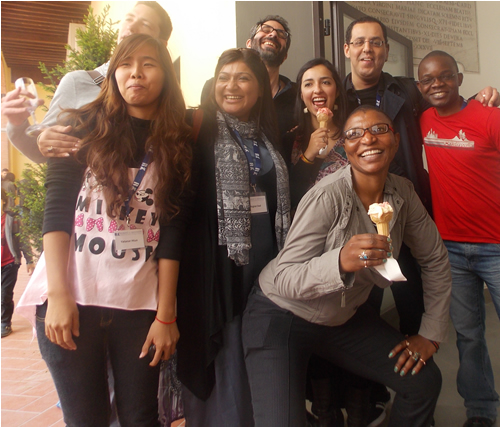A foreigner in Firenze
Friday, May 24th, 2013 by Lenard KamwendoAs the world starts to open up its doors to you that is when you realise the importance of learning as many foreign languages as you can. My father spoke three languages and I used to think he was trying to show off, not realising that because of his quest for greener pastures he had to adapt to new environments fast, and being comfortable speaking many languages was essential to job hunting. After learning English in school my belief was I that I could conquer the world not realising that the world doesn’t work like that!
When I was in Firenze recently I went to a restaurant and ate something that I didn’t order. Amongst our group nobody knew how to speak Italian. On the menu there were some English translations but we decided not to order the obvious and went for something different and Italian. I was the first to place my order and the waiter who was serving us also had language challenges. All I could hear from her was “Signo, Poi and Prego”.
Every meal you take in Italy you have to complement it with wine. So whilst I was waiting for my meal I was sitting in front of two bottles, one of red wine and the other of olive oil. I was in Italy to learn not to get knocked in the middle of the day so two glasses were enough for the occasion. By the time the main meal came I thought there was going to be some more coming not realising that I was eating the main course! To me it looked like a starter or something. The order I had placed was in Italian so I got grilled meat in tomato paste. It tasted good but sounded strange to me to eat meat with tomato paste. That’s when I realised that the world works well for you if you master the local language – red meat in tomato sauce could have been avoided if I had managed to read the menu well in Italian! The next time we went to the same restaurant I could see waiters switching so that we got served by the English speaking waiters.
So here I was in the middle of this Italian town that English speaking people prefer to call Florence but actually it should be pronounced Firenze. One thing I noticed from the day I set foot in this town was the church buildings. If you studied the Roman Empire in school you would know what I am talking about.
This a town where people just love art, art is everywhere. From buildings to the streets and even on the toilet paper I got in my room, art is just part of the day-to-day life in Firenze.
When I was walking around I saw this couple on honeymoon sitting in front of this artist having their picture drawn. They call it caricature.
Its summer in Italy right now so day light time stretches up to 11pm and this kinda affected me so much that I could find myself in the middle of the city after midnight, something I wouldn’t do in Zimbabwe. I would get back to my room around 2 am!
During my stay in Firenze I was living with about 8 friends from different parts of the world. The fear of getting lost was almost to none as the people there were helpful in giving directions and the motorists respect pedestrians so much unlike some places I know – Zimbabwe!










